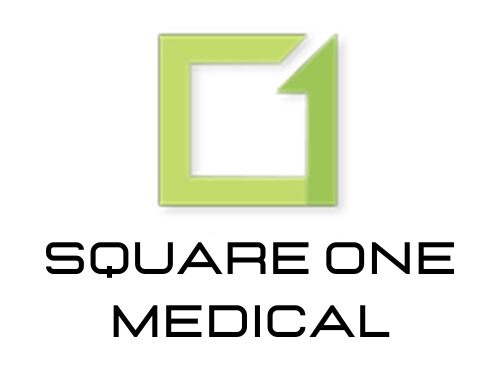Understanding Addiction: The Science Behind It By Collin Halstead
Addiction is a complex condition that affects millions of people worldwide, and it’s far more than just a bad habit or a lack of willpower. It is a chronic disease with deep biological, psychological, and environmental roots. Understanding addiction through a scientific lens can help us break the stigma surrounding this condition and guide those struggling with addiction toward effective treatments and long-term recovery. At Square One Medical, our comprehensive approach to addiction treatment focuses on addressing all aspects of addiction to help individuals reclaim their lives.

The Biological Basis of Addiction
Addiction primarily affects the brain’s reward system, which is the neurological pathway responsible for pleasure and reinforcement of behavior. Substances like drugs and alcohol trigger the release of dopamine, a neurotransmitter linked to feelings of pleasure and reward. When someone uses substances repeatedly, their brain adapts to these surges in dopamine, requiring larger amounts of the substance to achieve the same pleasurable effect. Over time, this leads to a condition known as tolerance, where more and more of the substance is needed to feel “normal.”
This change in brain chemistry makes it extremely difficult for individuals to quit using substances, as they may experience withdrawal symptoms or intense cravings when they stop. It’s important to recognize that addiction physically changes the brain, making it a chronic disease that requires professional treatment, not just a matter of willpower. At Square One Medical, we emphasize understanding the biological components of addiction, which is crucial to addressing the root cause and not just the symptoms of the condition.
Dopamine and Addiction Recovery
Dopamine plays a major role in substance abuse, and it’s important to realize that addiction affects more than just the reward system. Areas of the brain related to decision-making, impulse control, and emotional regulation are also impacted, making it incredibly hard for someone to quit using without help. By utilizing evidence-based therapies such as NAD+ Therapy and Cognitive Enhancement Therapy, we focus on restoring healthy brain function to help individuals regain control of their lives.
Psychological Factors in Addiction
Mental health plays a significant role in the development of addiction. Often, individuals struggling with mental health disorders such as anxiety, depression, or PTSD turn to substances like drugs or alcohol as a form of self-medication. This use may initially relieve their symptoms but ultimately worsens their mental health, creating a vicious cycle of substance use and psychological distress. Many people battling addiction also experience dual diagnosis—where addiction is compounded by an underlying mental health disorder.
Addiction and Mental Health
At Square One Medical, we recognize the link between addiction and mental health. Psychological factors such as negative thought patterns, low self-esteem, and unresolved trauma contribute to the progression of addiction. Without addressing these underlying mental health issues, long-term recovery becomes much harder to achieve. Our approach focuses on treating both the addiction and any co-occurring mental health conditions to provide a holistic recovery experience.
Many people hold onto limiting beliefs, thinking they will never be able to get clean or that it’s too late for them to make a change. This is simply not true. Addiction recovery is possible for everyone, and the sooner mental health is addressed in tandem with addiction treatment, the better the outcomes.

Environmental Influences on Addiction
In addition to biological and psychological factors, environmental influences play a critical role in addiction. Your upbringing, the people you surround yourself with, and your exposure to stressors or trauma can increase the risk of developing an addiction. Peer pressure is particularly influential among adolescents, where experimentation with drugs or alcohol may start as a social behavior but can quickly evolve into dependence.
Substance abuse is more common in environments where drug or alcohol use is normalized, or where stress and conflict are prevalent. For example, individuals raised in unstable home environments or those exposed to traumatic events are often more vulnerable to developing addiction. Social circles can also influence addictive behavior, as those who spend time with people who regularly use substances may find it harder to avoid substance use themselves.
Overcoming Environmental Challenges in Recovery
For many individuals, overcoming addiction requires a change in environment. At Square One Medical, our outpatient addiction treatment program helps patients create new routines and form healthier relationships. By offering a safe and supportive space, we give our patients the tools they need to build a life free from substance use.
Addiction Treatment in Palm Springs CA focuses not only on physical detoxification but also on helping individuals address the environmental factors that may be contributing to their addiction. It’s essential to establish new habits and form connections with others who support your recovery. By doing this, you give yourself the best chance for long-term success.

The Challenge of Overcoming Addiction
Overcoming addiction is challenging for several reasons, including the complex interplay of biological, psychological, and environmental factors. Addiction recovery is rarely a straight path; it often involves relapses, setbacks, and moments of doubt. However, it’s important to understand that recovery is possible with the right support system and comprehensive treatment.
At Square One Medical, we offer outpatient addiction treatment that includes a combination of medical, psychological, and social support. Our evidence-based therapies, such as Medication-Assisted Treatment (MAT) and NAD+ Therapy, focus on helping individuals manage withdrawal symptoms, reduce cravings, and address the underlying issues that contribute to addiction. Additionally, our focus on Cognitive Enhancement Therapy helps retrain the brain to improve decision-making, emotional regulation, and overall well-being.
NAD+ Therapy: A Revolutionary Approach to Addiction Treatment
One of the most powerful tools we use in our addiction treatment in Palm Springs CA is NAD+ Therapy. NAD+ (Nicotinamide Adenine Dinucleotide) is a coenzyme that occurs naturally in the body and plays a crucial role in cellular health and brain function. When someone is addicted to drugs or alcohol, their NAD+ levels become depleted, leading to brain fog, fatigue, and difficulty concentrating.
NAD+ IV Therapy helps restore these levels, providing numerous benefits during addiction recovery. Patients who receive NAD+ Therapy often report improved mental clarity, increased energy levels, and reduced cravings. This therapy supports the brain’s ability to repair itself and regain its natural function, making it a highly effective treatment for those recovering from addiction.
Cognitive Enhancement Therapy: Achieving Brain Wave Coherence
Cognitive Enhancement Therapy is another critical component of our addiction treatment program. Addiction impacts brain function, including decision-making, emotional regulation, and impulse control. Neurofeedback and other brainwave therapies help restore balance in the brain, promoting healthier thought patterns and emotional responses.
By using brainwave coherence therapy, we help individuals retrain their brains to function more effectively. This therapy not only supports addiction recovery but also improves mental health by reducing symptoms of anxiety, depression, and PTSD.
Common Myths About Addiction
One of the biggest barriers to seeking treatment is the myths surrounding addiction. Many people believe that addiction is simply a matter of willpower, or that it can be cured by quitting cold turkey. In reality, addiction is a chronic disease that requires professional intervention.
Some common myths include:
Myth: Addiction is a choice
Addiction is not a choice—it is a chronic disease that alters brain chemistry and function.Myth: You have to hit rock bottom before seeking help
Seeking treatment early can lead to better outcomes. You don’t have to wait until things get worse to reach out for support.Myth: Outpatient treatment isn’t effective
Outpatient addiction treatment in Palm Springs CA can be just as effective as inpatient treatment, especially when it involves evidence-based therapies like NAD+ and Cognitive Enhancement Therapy.
Long-Term Recovery: Desired Outcomes
At Square One Medical, we aim to help our patients achieve lasting recovery. Long-term sobriety is possible with the right combination of therapies, community support, and a willingness to embrace change. Our goal is to give every patient the tools they need to rebuild their lives and maintain a life free from addiction.
With comprehensive outpatient addiction treatment, individuals can continue living at home, working, and engaging with their community while receiving the medical and psychological support they need. By utilizing therapies such as NAD+ Therapy and Cognitive Enhancement Therapy, we help individuals regain their brain health, improve mental clarity, and achieve long-term success in recovery.
Empowering Individuals to Reclaim Their Lives
Understanding addiction through a comprehensive lens allows us to foster empathy and provide more effective support to those affected. By addressing the biological, psychological, and environmental factors of addiction, we can break the cycle and empower individuals to reclaim their lives.
At Square One Medical, our outpatient addiction treatment in Palm Springs CA combines the latest scientific approaches with compassionate care to help individuals achieve lasting recovery. If you or a loved one is struggling with addiction, contact us today to learn more about our treatment protocols.
Visit square1med.com or call us at (760) 286-9946 to begin your journey to recovery.
